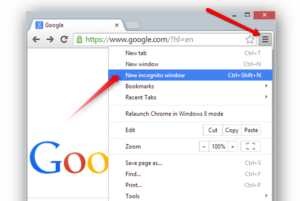How Personalised Search on Google and other Search Engines works
All search engines like Google, Bing, Yahoo and others tend to reach the same goal; ie to show a ‘right’ answer to your query and they try make your search as easy and useful as possible.
That’s why Search Engines started to analyse and take into consideration all the data on the preferences and interests of their users.
One of the latest innovations in search engines is a “personalised” search, i.e. search engine results that take into consideration your preferences and are showed only to you.
What changes when you insist on searching for your own site on Search Engine Results?!
Some of my clients persist in “searching” for themselves and the services they provide, to see where their ads and website are displaying.
We tell them not to do this!
Whilst we understand they are keen to know, what they do NOT realise is that they are ‘skewing’ the results served up to them on Google doing this- by never clicking on their own ads or links!
AND that they have just used up an ‘Impression” ( when the ad is shown) that could have been seen someone else actually searching in real time- and so miss out on a potential new customer.
Why shouldn’t you search for yourself on Google? Find Out with a Free call today!
When you enter your search engine query, the Google robot will analyse all the data it has on you and, depending on you as a user, the bot will change the search engine results shown to you, according to your known preferences and interests/ topics.
So as a result, those websites that you, the user/searcher often visit will be shown higher than other ones!
Search engine robots analyse all user activities, depending on the search engine query and decide by themselves what exactly search results to show.
However, if any user enters a new topic for them, for example, construction, then the search engine robots will display the more general search results as it would for all users without your preferences.
For an interesting take on Search, clicks and AI ( Artificial Intelligence) watch the TED talk by techno-sociologist Zeynep Tufekci, where she discusses..”how the same algorithms companies like Facebook, Google and Amazon use to get you to click on ads are also used to organize your access to political and social information”
What Affects Search Engine Results:
1. Geographical location (the same keyword can differ in different cities and countries, even in different regions of the same city)
2. Languages (if a user searches lots of information, for example, in Italian, then your search engine results will have more Italian websites than other ones)
3. Search History (search engines analyse your recent search engine terms and compose search engine results based on these queries)
4. History of visited websites (search engine systems form a certain opinion about your preferences and interests based on the topics of your visited websites)
5. Social media (search engine results can be formed depending on your interests, recommendations of your friends in social networks and websites that your friends estimate)
6. And many other things…like the thousands of different Servers Google uses worldwide, to show different things to different people- at the same time!
How to view general Search Engine Results Pages (SERPs) on Google Chrome:
1. Open the Google Chrome browser in Incognito mode (the browser won’t take into account your history of visited websites, social networks, authorization in search engine accounts and etc.).
a) Click the Chrome menu on the browser toolbar.
b) Select a New incognito window;

2) A new window will open with the incognito icon in the corner.
a) Enter a search engine query:
![]()
NOTE: In order to get more exact website positions you can use automated services, as those services don’t take into consideration user’s preferences, social networking and etc
That’s why you can get accurate website rankings rather than performing the searches yourself or ask for a Quote from JumpStart Matrix on bench marking and improving your SEO!
Credit for getting me to finally write this article to try to explain why searching for your own site and keywords is NOT good practice goes to Irina Weber
Does your business need help to get brand Confidence & Trust up – and be found in all the right channels online? No Problem!
Need Online Marketing Experts? Book that FREE Call Now!
